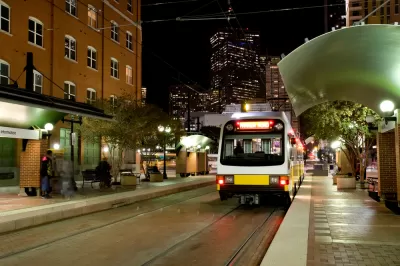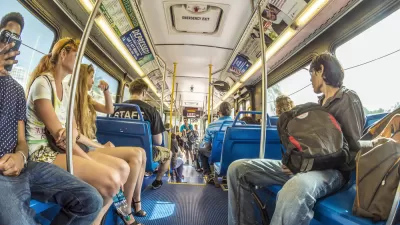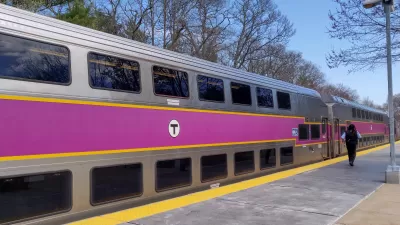Out of the top five U.S. metro areas, Houston's transit ridership is second-lowest only to Dallas.

While Houston's public transit gets a consistently bad rap, writes Alexandra Kanik, there's one city that has it even worse: Houston's neighbor to the north, Dallas, which gets the lowest public transit ridership of the top five most populous metro areas in the nation, with a paltry 13 rides per resident per year. Houston comes in second with 18 annual rides per resident, compared to New York City's close to 200 rides per resident.
According to Kanik, Houston has lower transit vehicle availability than some cities, but this metric doesn't always indicate the effectiveness of a transit system. While Chicago has lower availability than Houston, its transit system moves more people. "Surprisingly, Houston was the only city that actually added transit vehicles during the first year of the pandemic. In 2019, the Metropolitan Transit Authority of Harris County had 2,515 vehicles available for maximum service. In 2020, MTA lists that they added 43 vehicles for a fleet size of 2,558."
Yet Houston's growth continues to rely on cars, with auto-oriented household growth keeping near-perfect pace with overall growth. This holds true for Dallas as well. Both cities have a long way to go to create truly transit-oriented environments and reach ridership numbers close to that of other major cities.
FULL STORY: Is Houston's public transit really the worst? It's not as bad as Dallas, data shows

Maui's Vacation Rental Debate Turns Ugly
Verbal attacks, misinformation campaigns and fistfights plague a high-stakes debate to convert thousands of vacation rentals into long-term housing.

Planetizen Federal Action Tracker
A weekly monitor of how Trump’s orders and actions are impacting planners and planning in America.

San Francisco Suspends Traffic Calming Amidst Record Deaths
Citing “a challenging fiscal landscape,” the city will cease the program on the heels of 42 traffic deaths, including 24 pedestrians.

Adaptive Reuse Will Create Housing in a Suburban Texas Strip Mall
A developer is reimagining a strip mall property as a mixed-use complex with housing and retail.

Study: Anti-Homelessness Laws Don’t Work
Research shows that punitive measures that criminalized unhoused people don’t help reduce homelessness.

In U.S., Urban Gondolas Face Uphill Battle
Cities in Latin America and Europe have embraced aerial transitways — AKA gondolas — as sustainable, convenient urban transport, especially in tricky geographies. American cities have yet to catch up.
Urban Design for Planners 1: Software Tools
This six-course series explores essential urban design concepts using open source software and equips planners with the tools they need to participate fully in the urban design process.
Planning for Universal Design
Learn the tools for implementing Universal Design in planning regulations.
Heyer Gruel & Associates PA
JM Goldson LLC
Custer County Colorado
City of Camden Redevelopment Agency
City of Astoria
Transportation Research & Education Center (TREC) at Portland State University
Jefferson Parish Government
Camden Redevelopment Agency
City of Claremont





























